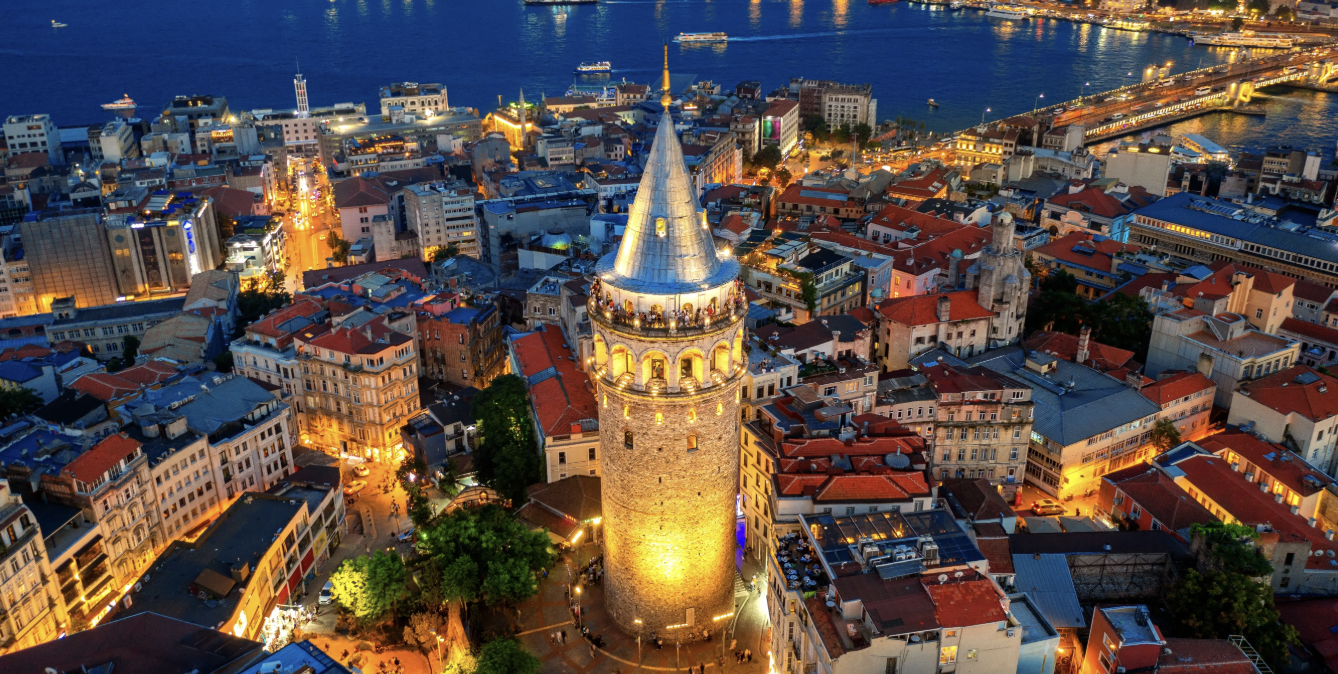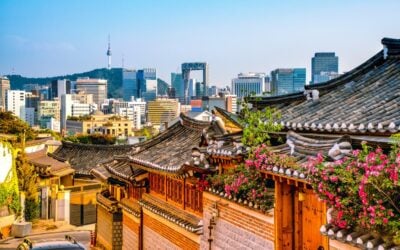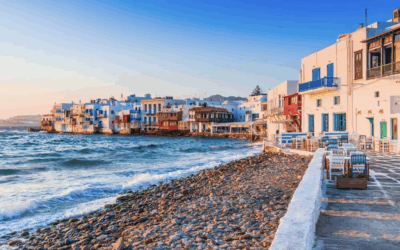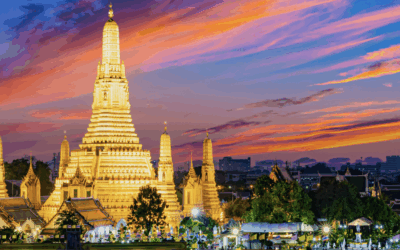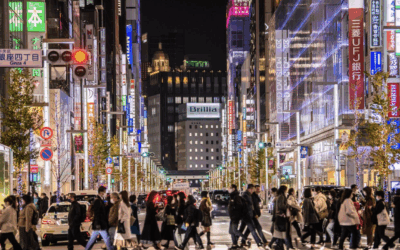Welcome to Istanbul, a city where East meets West in a dazzling fusion of history, culture, and opportunity. As Turkey’s largest metropolis, Istanbul isn’t just a destination – it’s a full experience.
Indeed, The bustling streets of the European and the more laid-back charm of the Asian side both offer a unique lifestyle waiting for expats to discover.
Living in Istanbul means immersing yourself in a city that bridges two continents, offering a blend of modern convenience and ancient traditions.
It’s a place where the call to prayer echoes through bustling markets, and where you can enjoy a cosmopolitan café culture alongside centuries-old architecture.
Without further ado, let’s outline everything you’ll need to make Istanbul your new home!
Why Move to Istanbul?
Istanbul is a city where ancient history meets modern vibrancy. From the awe-inspiring Hagia Sophia and Blue Mosque to the bustling Grand Bazaar, the city offers a unique blend of old-world charm and contemporary living.
It’s a place where you can sip Turkish tea in a centuries-old café before heading to a modern co-working space.
Istanbul’s location makes it a fantastic base for travelers and businesspeople alike. Placed between Europe, the Middle East, and Central Asia, it’s a hub for international travel.
Istanbul International Airport is one of the most well-connected in the world, offering flights to countless destinations.
Compared to practically any city in the western world, Istanbul is incredibly affordable.
While prices have risen drastically in recent years, you can still enjoy a high quality of life at a fraction of the cost. Istanbul certainly offers great value for money.
Best Neighborhoods for Expats
Istanbul is a city of contrasts, and this is reflected in its diverse neighborhoods between the Asian and European side.
You’ll find that each district has its own distinct personality, catering to a variety of lifestyles and preferences.
European Side
Beşiktaş
Beşiktaş is a lively and dynamic district, perfect for young professionals and expats looking for a central location. Known for its bustling markets and vibrant café scene, it’s a hub of activity both day and night.
The neighborhood is close to major business hubs, making it an excellent choice for those working in the city.
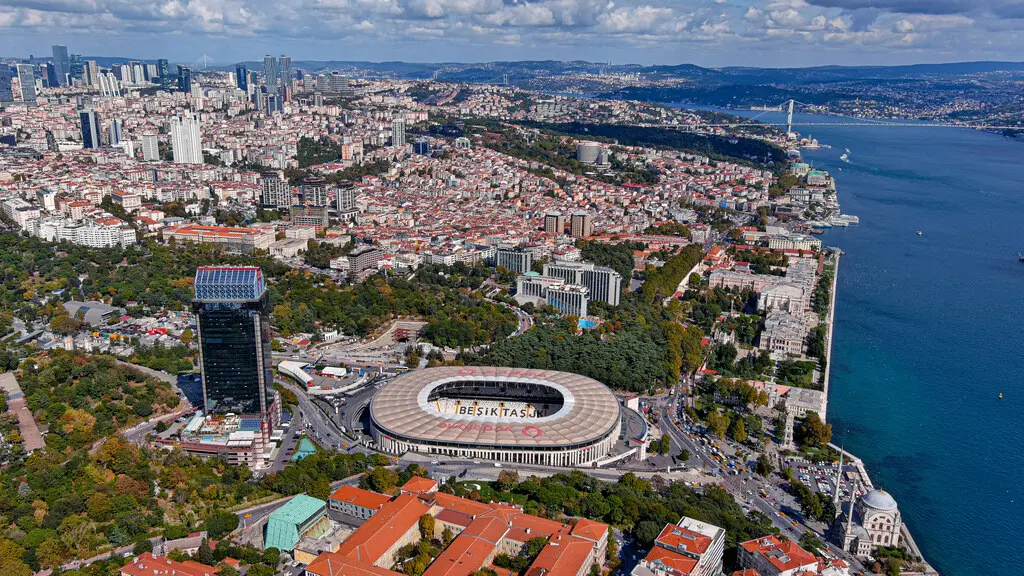
Beşiktaş is the spot for business, offices, schools, and universities. If you’re looking for an area that has a perfect mixture of everything, Beşiktaş, Istanbul is the place to be.
On weekends, Beşiktaş transforms into a hotspot for socializing. Waterfront promenade along the Bosphorus, trendy rooftop bars and more offers endless opportunities for leisure and entertainment.
It’s also home to several universities, adding to its youthful and energetic vibe. For expats seeking a mix of tradition and modernity, Beşiktaş strikes the perfect balance.
Nişantaşı
Nişantaşı is the epitome of luxury living in Istanbul. This upscale neighborhood is known for its designer boutiques, gourmet restaurants, and chic apartments. It’s a favorite among diplomats, affluent expats, and anyone looking for a touch of sophistication.
Beyond its high-end shopping and dining, Nişantaşı also offers a quieter, more refined atmosphere compared to other parts of the city. Tree-lined streets and elegant architecture make it a pleasure to explore on foot.
It’s an ideal location for those who value exclusivity and convenience, with easy access to cultural landmarks and business districts.
Cihangir
Cihangir is a bohemian enclave that attracts artists, writers, and digital nomads. Situated near Taksim Square, it’s a neighborhood that combines charm with creativity.
With its narrow streets, colorful buildings, and eclectic mix of cafés and boutiques, Cihangir has a unique, laid-back vibe.
This neighborhood is particularly popular with expats who value community. Cihangir is home to a diverse population, and it’s easy to meet like-minded individuals at its many cultural events and gatherings.
The area also offers stunning views of the Bosphorus, making it a picturesque place to call home.
Asian Side
Kadıköy
Kadıköy is a vibrant and creative district that offers a more laid-back alternative to the European side. Known for its art scene, indie boutiques, and coffee shops, it’s a favorite among young professionals and families.
The neighborhood boasts excellent ferry and metro connections, making it easy to commute to other parts of the city.
What sets Kadıköy apart is its community spirit. From open-air markets to local festivals, there’s always something happening.
The area’s waterfront promenade is perfect for evening strolls, while its array of affordable dining options ensures you’ll never go hungry. Expats looking for a lively yet relaxed atmosphere will feel right at home in Kadıköy.
Üsküdar
Üsküdar is a quieter, more traditional district that offers stunning views of the Bosphorus. It’s an excellent choice for families or those seeking a peaceful environment.
The area is rich in Ottoman history, with numerous mosques, palaces, and historical landmarks to explore.
Despite its tranquil vibe, Üsküdar is well-connected to the rest of Istanbul. Its ferry terminals provide quick access to the European side, while its local markets and parks make it a charming place to live.
For expats who appreciate a slower pace of life without sacrificing convenience, Üsküdar is an ideal choice.
Istanbul’s Cost of Living
The cost of living in Istanbul is one of its most attractive features for expats, especially those earning in foreign currencies like Euros, US Dollars, or British Pounds.
While prices have risen in recent years due to inflation, Istanbul remains significantly more affordable than many Western cities.
A single person can live comfortably on $1,500–$2,000 per month, while families of four may need a budget of $3,000–$4,000 depending on their lifestyle and housing choices.
Housing Costs
Housing is often the biggest expense for expats. Renting a one-bedroom apartment in the city center typically costs between 30,000 to 50,000 TRY, while similar apartments outside the center range from 10,000 to 15,000 TRY.
For families, a three-bedroom apartment in the city center can cost up to 80,000 TRY monthly, whereas moving to suburban areas can cut that in half.
If you’re looking to save money, consider neighborhoods on the Asian side, such as Kadıköy or Üsküdar, which offer more affordable options with top-end amenities.
Utilities and Groceries
Utilities such as electricity, water, and gas cost approximately $60–$100 per month for an average-sized apartment. Internet services are quite affordable, with high-speed plans costing around $10–$20 monthly.
Looking at the price of groceries, shopping at local markets is the most budget-friendly option. Fresh produce, dairy, and meats are widely available and cost significantly less than in Western countries.
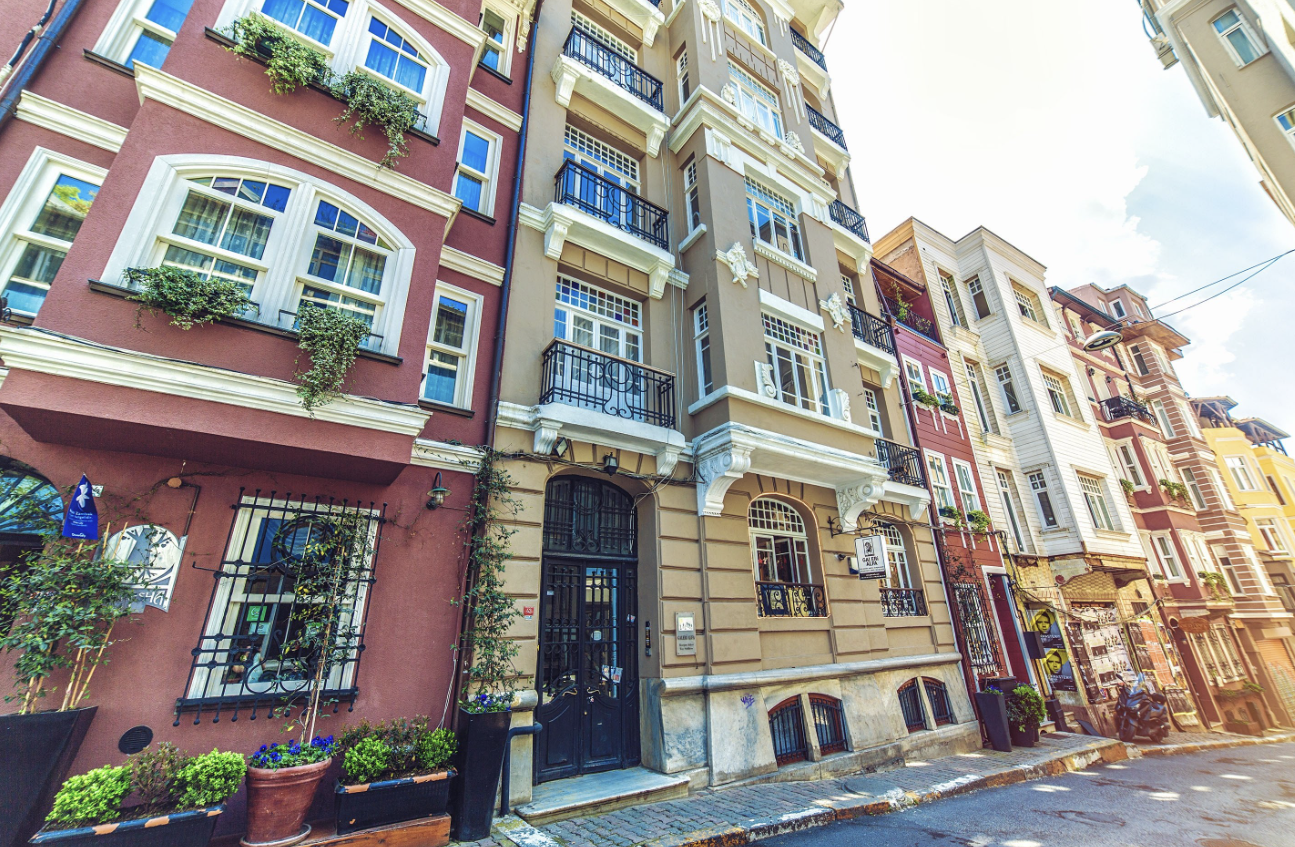
Cihangir, known for its artistic and multi-cultural community, attracts expat looking to explore their creativity and expand their social lives in a laid-back vibe.
For instance, a kilogram of tomatoes costs around 60 TRY, while a loaf of bread is approximately 40 TRY.
Dining and Entertainment
Dining out in Istanbul offers options for every budget. Meals at local restaurants range from 100–250 TRY per person, while mid-range dining for two can cost around 1,000 TRY.
The city is also known for its vibrant nightlife, with affordable options for bars, clubs, and cultural events.
Getting Around
Istanbul’s sprawling size can make navigating the city seem daunting at first. Yet its extensive public transport system makes it surprisingly manageable.
The key to getting around efficiently is the Istanbul Kart, a reloadable card that works across buses, trams, metros, funiculars, and ferries.
This card costs around 50 TRY and can save you a significant amount on fares. Monthly transport passes cost roughly 1,500 TRY (about $40), making public transit an economical and convenient choice.
Public Transport Options
The metro system has expanded significantly in recent years, with lines connecting most major neighborhoods, including a direct link to Sabiha Gökçen International Airport.
Ferries are a scenic and affordable way to travel between the European and Asian sides of the city, offering breathtaking views of the Bosphorus. Buses and minibuses (dolmuş) are also widely available but can be crowded during peak hours.
Taxis and Ride-Sharing
Taxis are relatively affordable, with fares starting at 20 TRY, but be cautious of drivers who may take longer routes.
Ride-sharing apps like Uber and BiTaksi are popular alternatives, offering easy pricing and safer experiences.
For those who prefer driving in Istanbul, car rentals are available, but traffic congestion and limited parking in the city center can be challenging.
Visas and Residency
Navigating the visa and residency process is an essential step for any expat planning to live in Istanbul. Turkey offers several visa options depending on the purpose and length of your stay.
Turkish citizenship by investment is also an option, and we have a full article about it here.
Tourist Visa
Many nationalities can stay in Turkey for up to 90 days within a 180-day period on a tourist visa.
This is a great option for those who want to explore the city before committing to a longer stay. Some nationalities, including citizens of the US, UK, and EU countries, can enter visa-free for short stays.
Residence Permits
If you plan to stay longer, applying for a residence permit is essential. The Short-Term Residence Permit is the most common option for expats and is valid for up to one year.
It requires a valid passport, proof of income, a rental contract or property deed, Turkish health insurance, and biometric photos.
For those looking to stay permanently, the Long-Term Residence Permit is available after eight consecutive years of legal residency.
Work and Student Permits
Foreigners with job offers can apply for a Work Permit, which also serves as a residence permit.
Employers typically handle the application process. Students enrolled in Turkish universities can apply for a Student Residence Permit, which is valid for the duration of their academic program.
Working in Istanbul
The job market in Istanbul offers opportunities for expats, particularly in teaching English, working as au pairs, and roles in multinational corporations.
English teaching jobs in Istanbul are among the most accessible, but most schools require a TEFL certificate.
Industries and Restrictions
Expats working in Istanbul should be aware of industry restrictions. Foreigners are prohibited from working in certain fields, such as healthcare, law, and security.
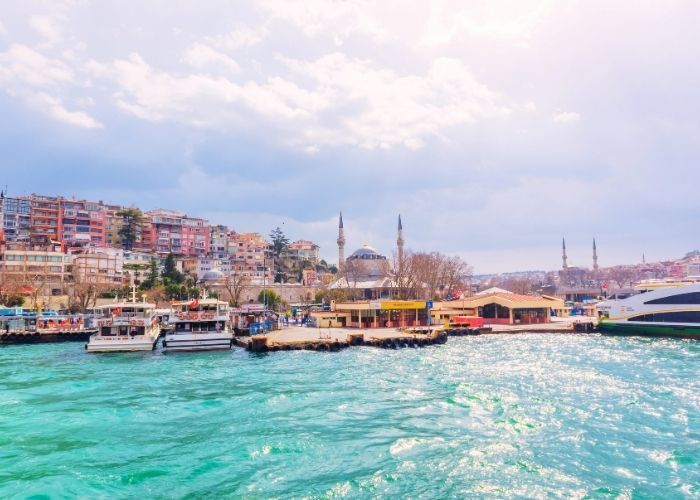
Üsküdar is the right area for those who prefers to be surrounded by historical sites and still enjoy a quiet lifestyle on the Asian side of Istanbul.
With that said, other sectors like tech, tourism, and education are more open to foreign professionals who want to work in Turkey.
Work Permits and Salaries
Work permits in Turkey are mandatory for employment and are typically arranged by your employer.
Salaries vary widely depending on the industry, but expats in teaching or corporate roles can expect to earn enough to live comfortably, especially given Istanbul’s affordable cost of living.
But of course, Turkey as a whole doesn’t have anywhere near the highest salary of any country in the world.
Healthcare in Turkey
Turkey offers a robust healthcare system with both public and private options. Public healthcare is available through the SGK system, which requires registration through your employer.
With that said, most expats prefer private hospitals for their modern facilities, shorter wait times, and English-speaking staff.
Private Healthcare Options
Private hospitals in Istanbul are world-class, with some catering specifically to medical tourists. Popular choices include Acibadem Hospital in Kadıköy and American Hospital in Nişantaşı.
These facilities offer high-quality care at prices significantly lower than in Western countries.
Pharmacies and Emergency Services
Pharmacies (Eczane) are easily accessible and provide basic medical advice. They operate from 10:00 to 19:00, with at least one 24-hour pharmacy available in each district on a rotating schedule.
In emergencies, dial 112 for ambulance services, which are generally reliable and fast.
Health Insurance
Health insurance is mandatory for most residence permit holders. Many expats opt for international health insurance plans, which offer broader coverage and access to private hospitals.
Turkey’s reputation as a medical tourism destination ensures high standards of care at competitive prices.
Should You Move to Turkey?
Istanbul is more than just a city- it’s a gateway to a new way of life. With its rich history, strategic location, and diverse neighborhoods, it offers endless opportunities for expats.
It doesn’t matter if you’re drawn to the luxury of Nişantaşı, the creative spirit of Kadıköy, or the tranquility of Üsküdar – Istanbul truly has a corner for everyone.
Living here means embracing a unique blend of cultures, cuisines, and traditions. It’s a city that challenges and rewards you in equal measure, offering a lifestyle that’s as dynamic as its skyline.
Make the leap, and you’ll discover why so many expats are proud to move to Turkey and call Istanbul home!
Of course, Istanbul is the largest city in Turkey but isn’t the only one. We also have an article about the best cities in Turkey outside of Istanbul.
FAQs: Expat Living in Istanbul, Turkey
Why is Istanbul a Popular Destination for Expats?
Istanbul is a vibrant city where East meets West, offering a unique blend of ancient traditions and modern conveniences.
The city's strategic location, rich history, affordable cost of living, and diverse neighborhoods make it an attractive destination for expats seeking a dynamic lifestyle..
What Are the Best Neighborhoods in Istanbul for Expats?
- Beşiktaş: Known for its lively markets, vibrant café scene, and proximity to business hubs, it’s ideal for young professionals and social expats.
- Nişantaşı: A luxurious area offering designer boutiques, gourmet restaurants, and a refined atmosphere, perfect for those seeking exclusivity.
- Cihangir: A bohemian neighborhood popular with artists, writers, and digital nomads, offering a laid-back vibe and stunning Bosphorus views.
- Kadıköy: A vibrant district with an artistic atmosphere, indie boutiques, and excellent public transport connections, perfect for young professionals and families.
- Üsküdar: A quieter area rich in Ottoman history, offering a peaceful environment and stunning views of the Bosphorus, ideal for families or those seeking tranquility.
What Visa Options Are Available for Expats in Turkey?
Expats can stay in Turkey for up to 90 days within a 180-day period on a tourist visa. For longer stays, a short-term residence oermit is available for up to one year.
Work permits are required for employment, and employers typically handle the application process. The long-term residence permit is an option after eight years of legal residency.
How Affordable is the Cost of Living in Istanbul for Expats?
Istanbul offers a significantly lower cost of living compared to Western cities. A single person can live comfortably on $1,500-$2,000 per month, while a family of four may need $3,000-$4,000.
Housing costs in Istanbul vary widely by location, with the Asian side generally offering more affordable options compared to the European side.
What Are Job Opportunities Like for Expats in Istanbul?
Expats often find opportunities in teaching English, working in multinational corporations, or roles in tech and tourism industries. However, certain fields like healthcare and law have restrictions for foreigners.
Salaries in Istanbul are generally sufficient to support a comfortable lifestyle, given the lower cost of living.

